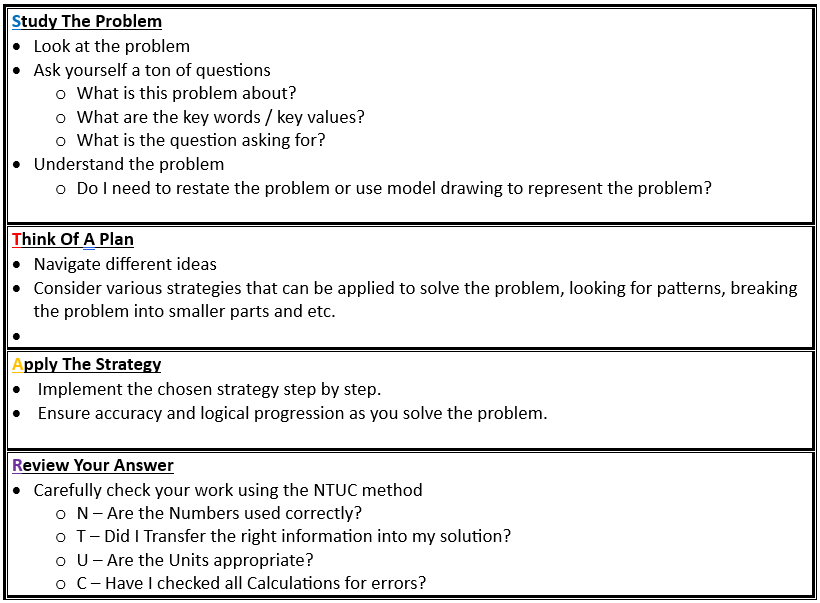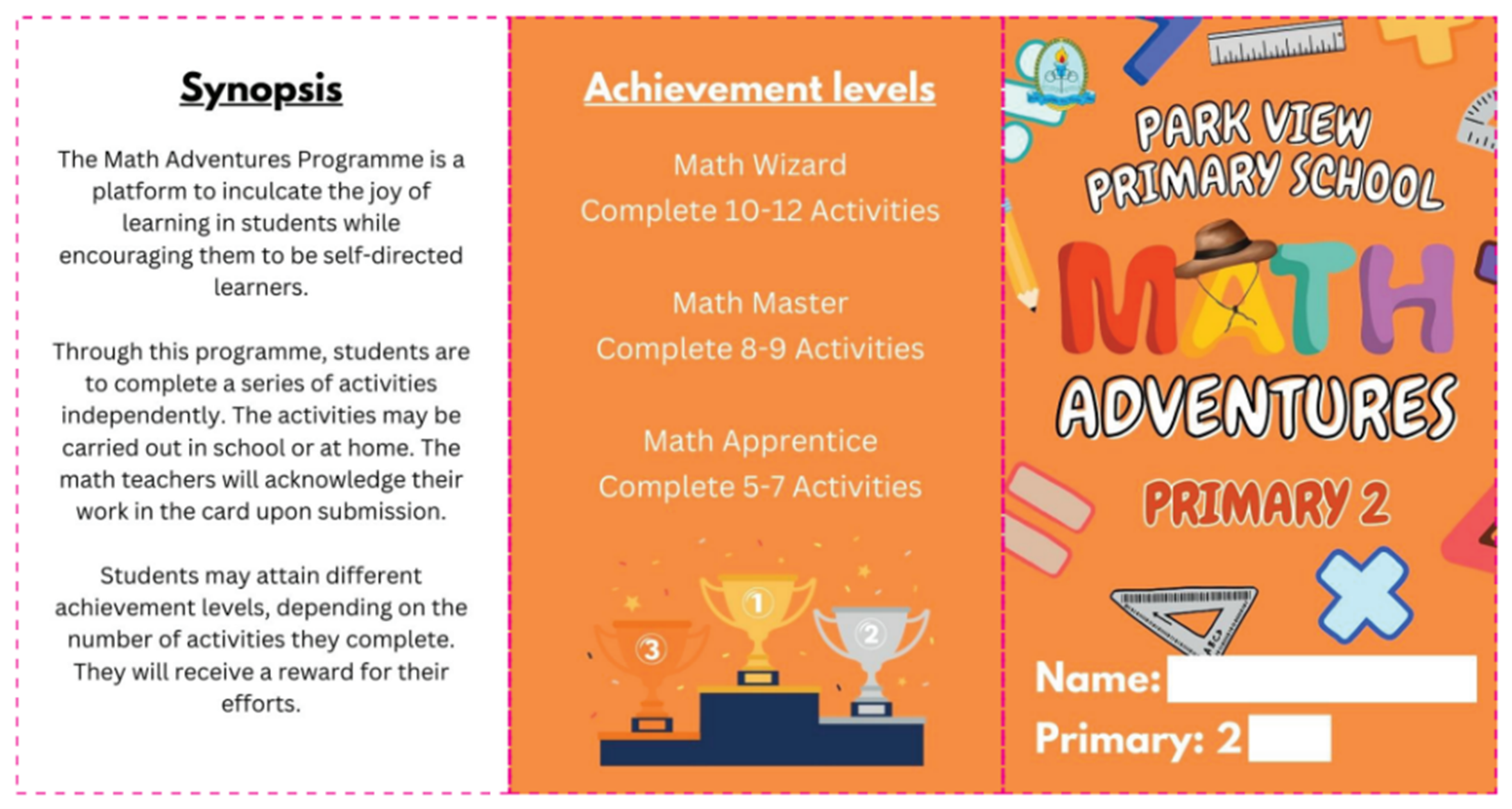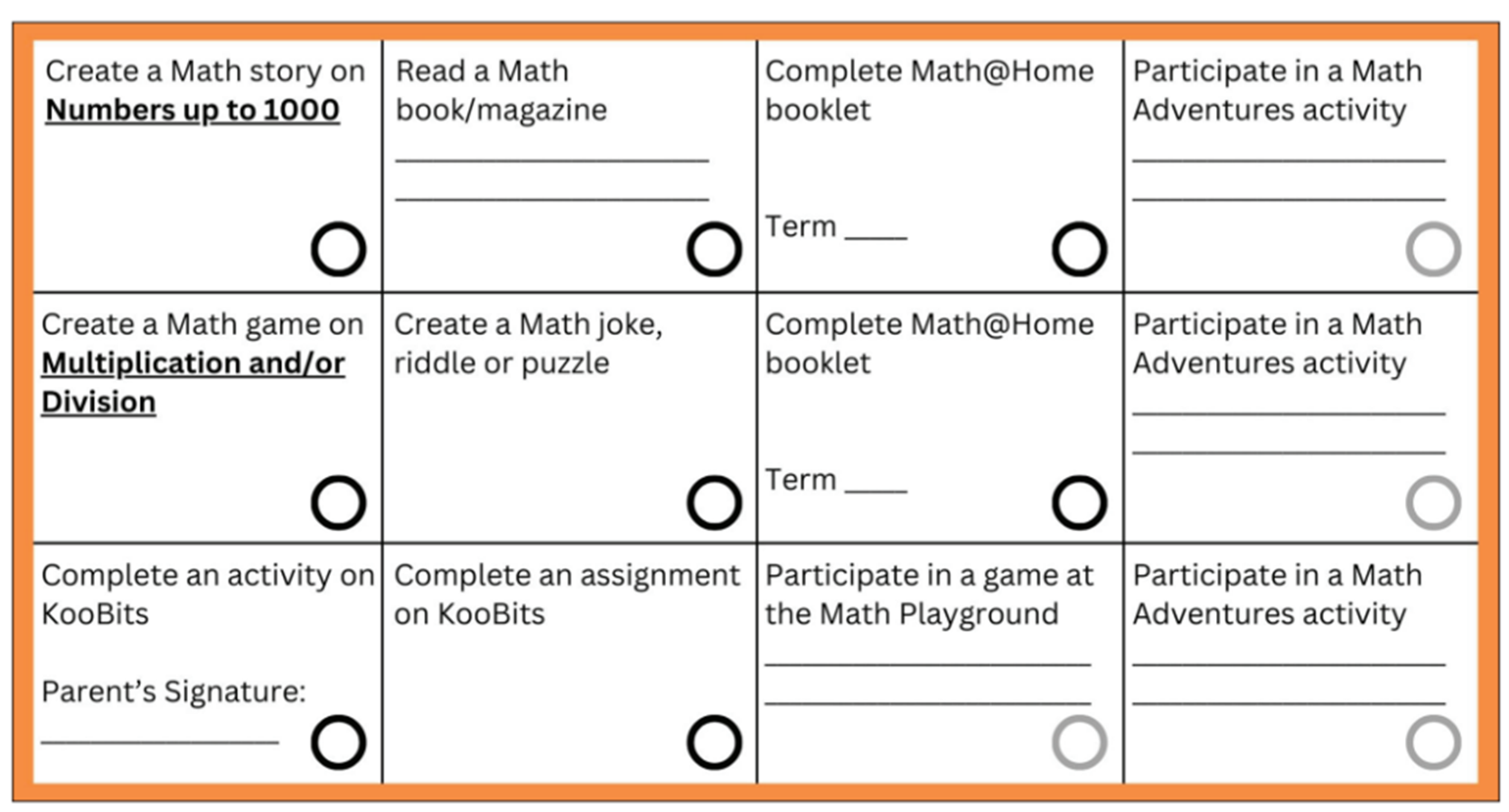Mathematics

The Singapore Mathematics Framework is centered around Mathematical Problem Solving, supported by five key components: Concepts, Skills, Processes, Metacognition, and Attitudes. It follows a structured approach where students build a strong foundation through the Concrete-Pictorial-Abstract (CPA) method, develop problem-solving strategies, and apply mathematical thinking in real-world contexts. The framework emphasizes reasoning, communication, and connections while nurturing critical thinking, perseverance, and confidence in learners.
Through the school's Enrich, Support, and Stretch (ESS) approach, the Singapore Mathematics Framework ensures that all students, regardless of their learning needs, develop mathematical mastery and a deep appreciation for the subject. The Support component provides targeted interventions to build a strong foundation, while Enrich enhances learning through problem-solving, inquiry based learning and critical thinking. Stretch offers opportunities to explore advanced concepts and apply creative strategies. This differentiated approach fosters confidence, perseverance, and a growth mindset, equipping students with essential skills to excel in mathematics and beyond.
|
Enrich |
Support |
Stretch |
|---|---|---|
|
|
|
STAR Problem Solving

The Mathematics Department adopts the STAR approach, a structured 4-phase process designed to equip students with essential problem-solving skills and confidence in tackling real-world mathematical challenges. Grounded in George Polya’s problem-solving technique, this approach provides a systematic framework to guide students in understanding, strategizing, solving, and reflecting on problems effectively.

The Math Adventures

The Math Adventures Programme is designed to ignite a passion for learning mathematics while fostering self-directed learning in students. Through engaging and thought-provoking activities, students develop confidence, curiosity, and a deeper appreciation for mathematical concepts.
As part of this programme, students complete a series of independent activities, which can be done both in school and at home. Upon submission, mathematics teachers will acknowledge and validate their progress by recording their accomplishments on their personal achievement cards.
Students have the opportunity to attain different achievement levels based on the number of activities they complete. To celebrate their efforts and perseverance, they will receive recognition and rewards, motivating them to continue their mathematical journey with enthusiasm and determination.
Math Adventure Recess Activities
The Math Adventure Recess Activities provide students with a fun and engaging way to explore mathematics beyond the classroom. Held during recess, these interactive activities encourage students to apply mathematical concepts through games, puzzles, and hands-on challenges.
By participating, students enhance their problem-solving skills, logical reasoning, and mathematical fluency in an enjoyable and stress-free environment. These activities also foster collaboration and friendly competition, allowing students to learn from their peers while developing a deeper appreciation for mathematics.
Math Adventure Card
The Math Adventure Card is a motivational tool designed to track students’ progress and achievements in the Math Adventures Programme. Each time a student completes a math-related activity—whether in school, at home, or during recess—they earn a stamp or signature on their card as recognition of their effort and perseverance.


E2K (Excellence 2000) Mathematics Programme
The E2K (Excellence 2000) Mathematics Programme is a specialised enrichment programme designed for Primary 4 to 6 high-progress learners with a passion for mathematics. Students in the E2K programme engage in challenging mathematical tasks, hands-on explorations, and collaborative discussions, allowing them to deepen their understanding of advanced mathematical concepts beyond the standard curriculum. The programme also encourages independent learning and creativity, fostering a growth mindset and perseverance in tackling complex problems.
Learning Support for Mathematics (LSM) Programme
Learning Support for Mathematics (LSM) is an intervention programme in Singapore aimed at helping Primary 1 to 4 students who need additional support in developing foundational numeracy skills. It provides targeted, small-group instruction to students who face challenges with basic mathematical concepts, ensuring they build confidence and competence in mathematics. The programme is designed with structured lessons that emphasize hands-on activities, visual representations, and step-by-step guidance to strengthen students’ understanding and problem-solving skills. By addressing learning gaps early, LSM helps students progress alongside their peers in their mathematical learning journey.
Important Links
|
Approved Calculator List |
|
|
PSLE Matters |
|
|
KooBits |

